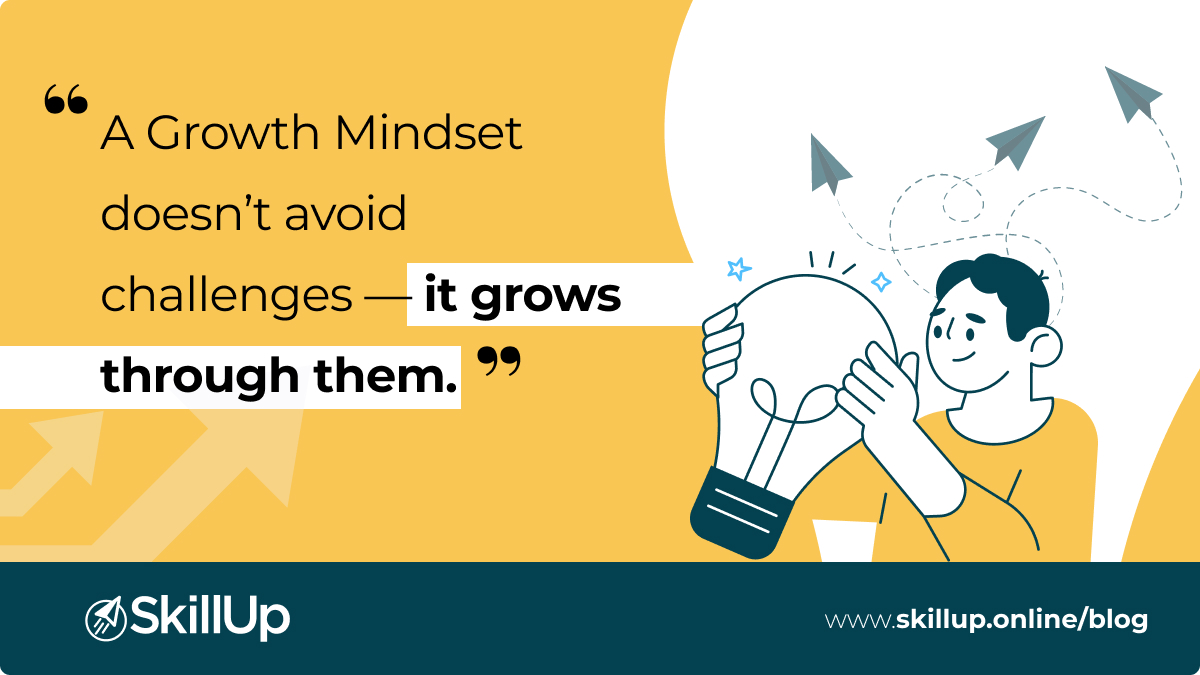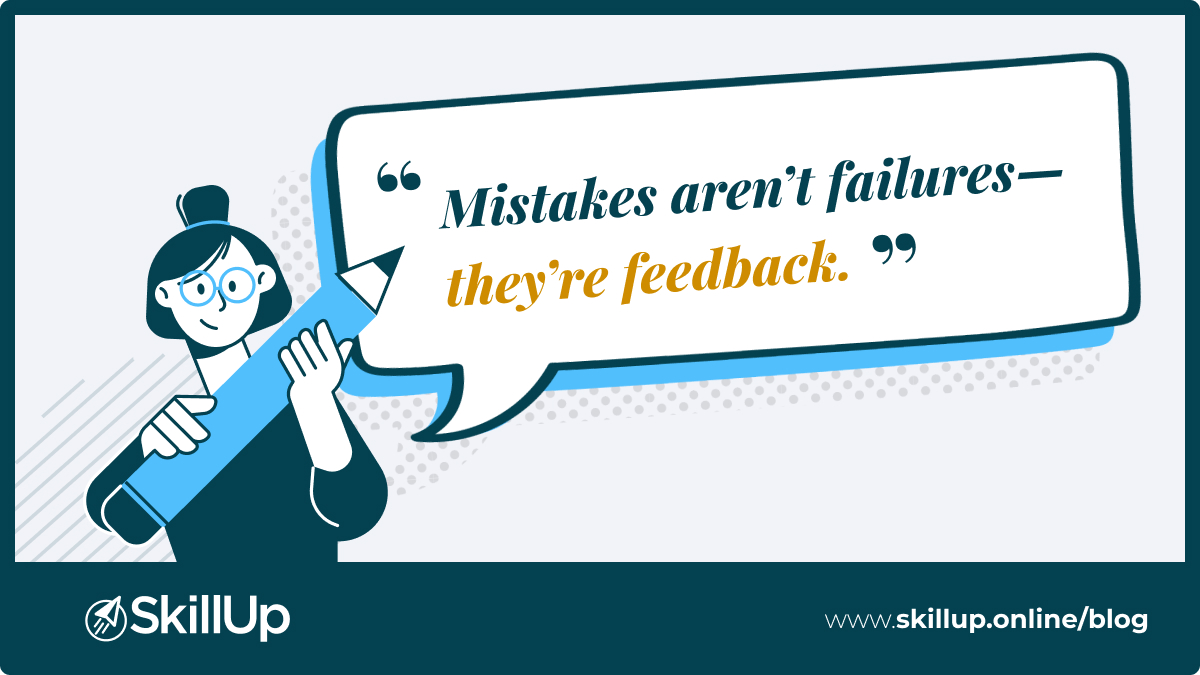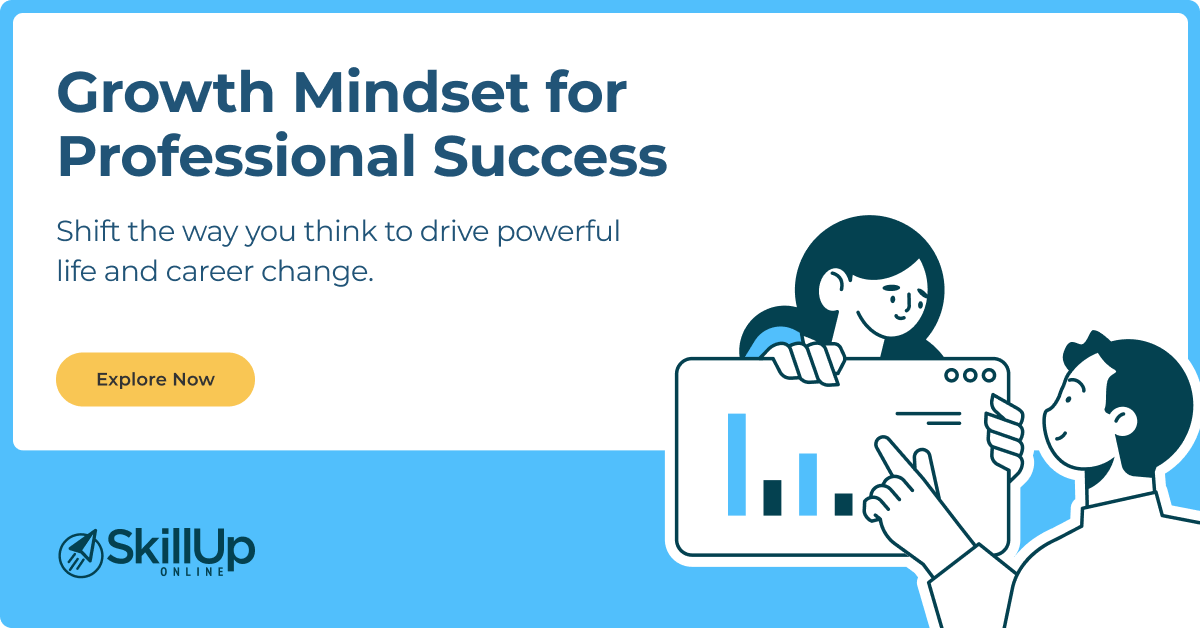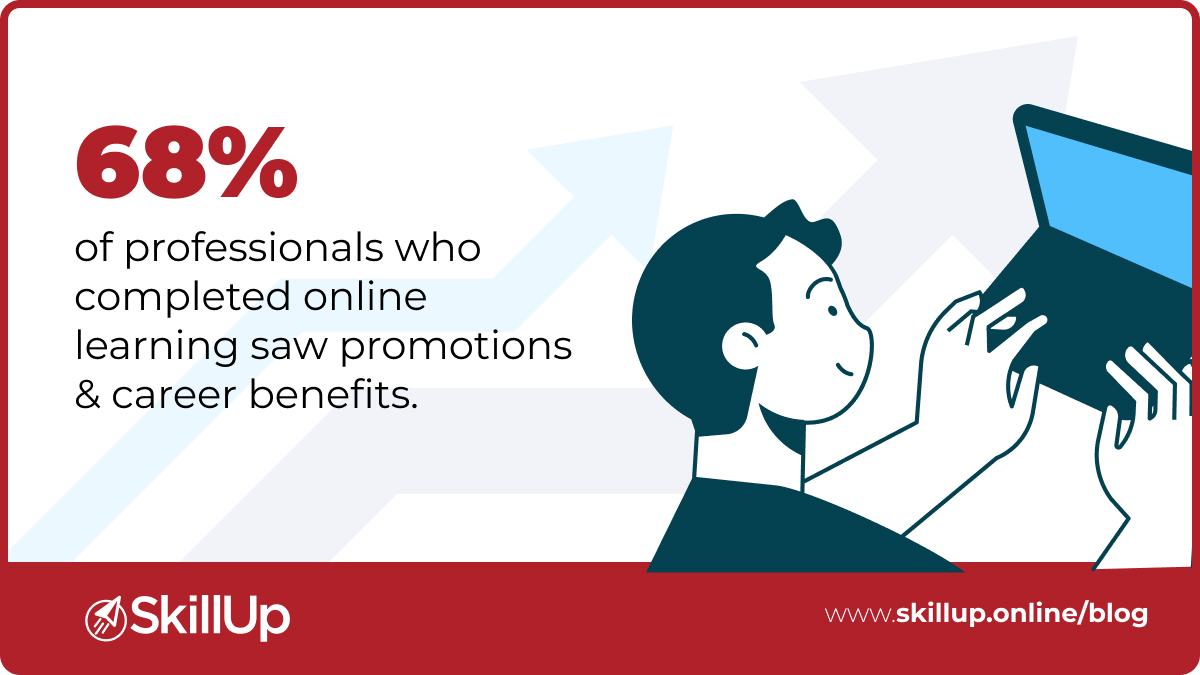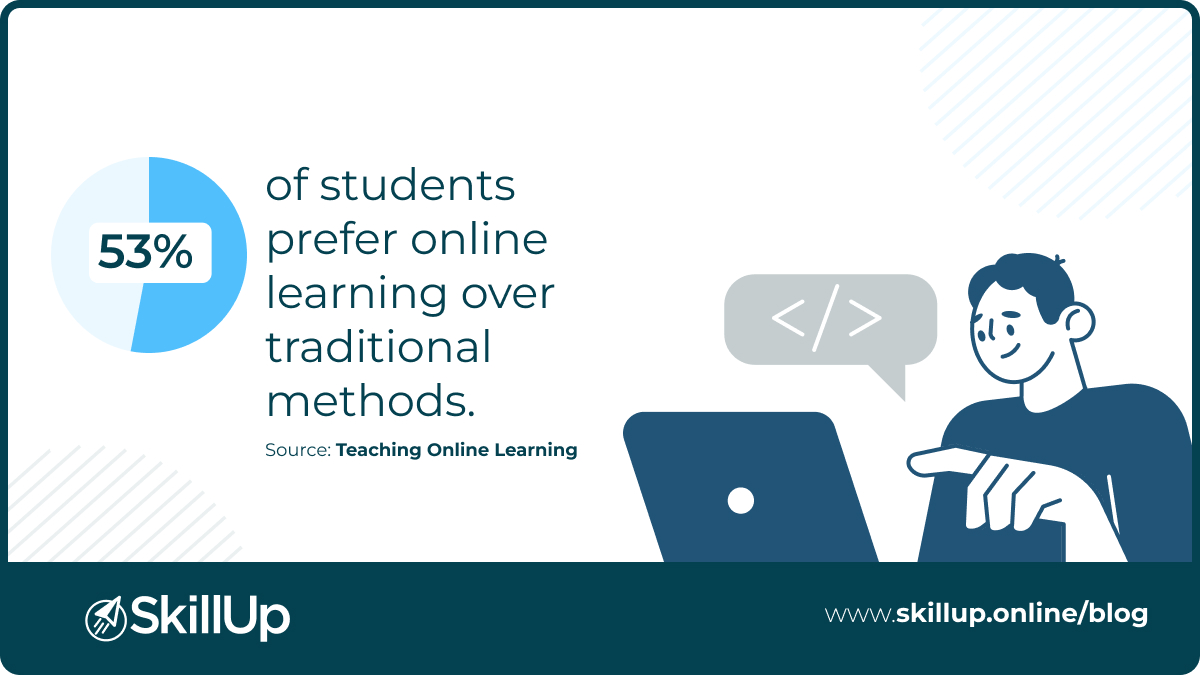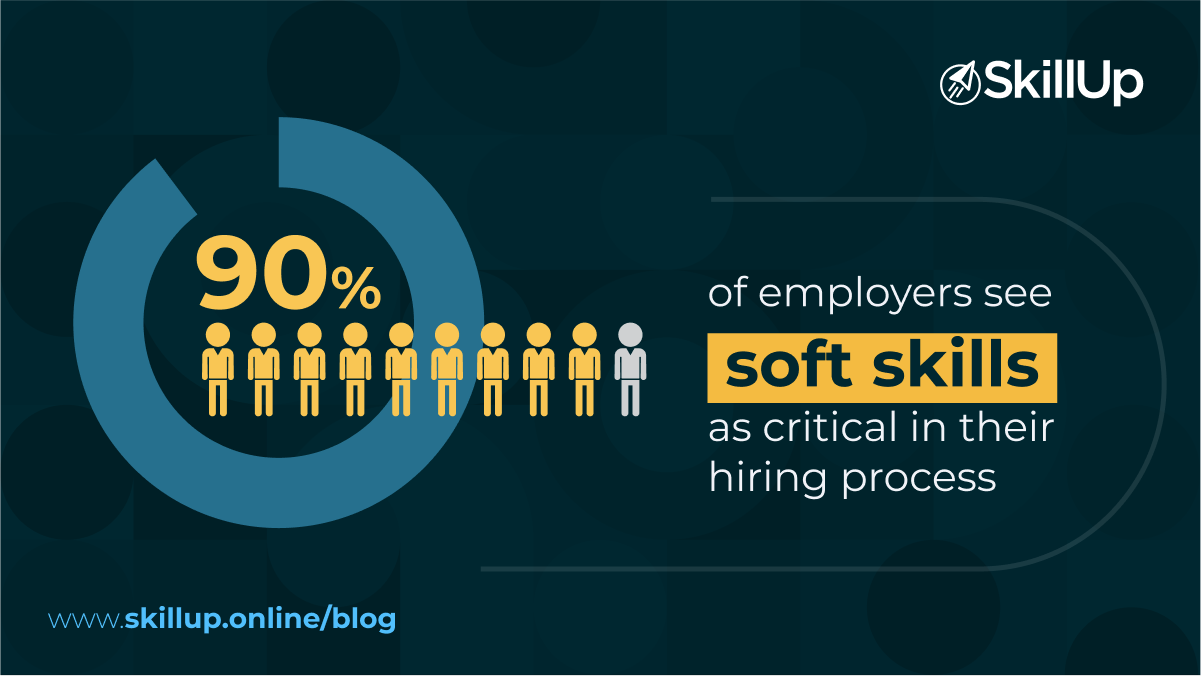I love the growth mindset topic and have spent multiple years providing training and seminars on how to develop one. I’ve also previously written blogs about growth mindset. In those past blogs I’ve tried to provide a high-level overview of growth mindset, along with some simple steps one can take to establish one: https://skillup.online/blog/growth-mindset-exploring-the-most-important-career-skill/.
With my passion for this topic, I’ve decided to write a few more blogs to dig deeper into the subject and provide a more immersive commentary on how to truly develop and exhibit this sought-after trait.
Golf, Frustration, and Learning Curves—Reflecting on the Mindset Contrast
Anyone who has learned, or tried to learn, to play golf will understand the dichotomy of how fun and frustrating the sport can be. Even as a beginner, a new golfer will hit the occasional great shot. However, for a beginner, that great shot will be mixed between a plethora of shots that go in the water, the sand trap, or travel about three feet. This contrast between the occasional great shot and the myriads of errant shots has provided me with an interesting object lesson on the topic of growth mindset.
My father was an avid golfer, and his love for the sport led him to introduce it to both me and my brother at a fairly young age. I remember vividly going golfing with my dad as he endeavored to teach and share with us this pastime that he loved. I also remember, just as vividly, the process of trying to learn a new talent with an older brother who possessed a much more volatile temperament than me. As already mentioned, every new golfer goes through a steep learning curve that is littered with bad shot after bad shot. However, the difference in temperament between me and my brother as we encountered these bad shots was pronounced.
Sure, I would express frustration and even audibly grumble at times upon hitting a bad shot, but my brother was much more inclined to tantrums and profanity in the same situations. I had a very patient father who continued to work with both of us despite the harsh actions from my brother in a sport that was typically defined as gentlemanly. That continued for a couple of months until one day my brother announced that he was no longer going to learn how to play golf. And he didn’t. Even though my father continued to invite him to our weekly golf outings, my brother stayed true to his declaration and quit playing golf. I never became a great golfer, but I did continue to learn and grow in the sport and have enjoyed many, many years of playing the fun and frustrating game.
Reflecting on the Mindset Contrast
As mentioned above, I share this story because it provides an interesting object lesson on the topic of growth mindset. I don’t mean to disparage my brother. He was a better athlete than me, and he went on to become accomplished in other sports. However, as related to the focus of this growth mindset principle, our behaviors do illustrate the contrasts between someone with a growth mindset versus a fixed mindset.
As you take your journey to develop a growth mindset, my hope is that this example can help you more clearly understand and adopt its associated behaviors. Indeed, one of the hallmarks of someone that possesses a Growth Mindset is that they embrace challenges, love learning new things, don’t mind mistakes, and are very slow to leave a learning opportunity. As such, I invite you to think about how you approach the process of learning new skills and how you respond to making mistakes along the way.
Applying Growth Mindset to Real Workplace Situations
Stepping away from the golf analogy and applying these principles to a typical career workplace, there are many parallels that come into focus. Consider the following scenarios, self-assess how you would respond, and measure that response against the growth mindset principles being discussed.
Scenario 1: New Assignment, Learning New Skills Opportunity
Your boss announces that a new software application is being deployed that will radically alter the way business processes are currently conducted. They are looking for a volunteer to spearhead the deployment process. The person chosen for this assignment will need to become a subject matter expert on the new software and provide leadership to the organization in adopting it. The software being deployed is not something you’re familiar with, and the technical aptitude required would require some extra work to come up to speed.
Scenario 2: When the Task is Difficult
Three months ago, upon the advice of your previous manager, you transferred to a new department and took on a new job assignment. At the time this new job looked exciting and seemed destined to provide you with new career opportunities. What you didn’t anticipate was a new boss that would micro-manage most of your work. You also didn’t expect a new group of peers that were all dramatically competitive to be the top employee in the organization, willing to disparage your work if it meant advocating their work. You are learning new skills and enhancing your career profile, but it’s becoming more frustrating each day to deal with these conditions of your new job.
Scenario 3: You’ve Made a Mistake
You were recently put in charge of identifying and securing a venue for the annual off-site event for your organization. You conducted a meeting with all the department leaders and were provided with strong directions that, given the timing of the event, it should be hosted at a location with a warm climate. You conduct hours of research and come across a fantastic venue, available for the dates you need, with an amazing price, and it’s located in Southern California. Not wanting to miss the opportunity, you book the venue with a 20%, non-refundable down payment. The very next day you get an email from your corporate VP, who is responsible for funding the event. They inform you that due to budget constraints, the off-site will need to be held in Seattle, Washington, because almost a third of the employees in the organization live in this area, and that significant savings will be realized by not having to pay travel expenses for these employees.
How a Growth Mindset Responds to Each Scenario
As you contemplate how you would respond in each of these scenarios, contrast and/or compare your response with that of a person who has a strong growth mindset. The following is a summary of how a growth mindset focused person would handle the situation.
New Assignment, Learning New Skills Opportunity
They see the extra effort that will be required as challenging and motivating. Even though this will push them outside of their comfort zone, they volunteer for the assignment because they understand it will help them develop new skills, upgrade their resume, and provide a rewarding experience upon completion.
When the Task is Difficult
The challenges presented by this situation can be difficult to address and would likely require a tactful approach to resolve. However, the growth mindset focused person would not let the challenges overshadow the development and learning that is taking place. They place significant value on the fact that they are fostering new skills, growing their network, and moving their career forward. Certainly, they will be looking to address the unforeseen challenges, but in so doing they are adding even more growth and refinement to their skillset.
You’ve Made a Mistake
The person with a growth mindset sees mistakes as learning opportunities, and they embrace the mistakes head-on. They would be quick to admit their mistake to their boss and VP, be fully transparent about it, and provide recommendations on how the mistake can be quickly remedied. They don’t dwell on the mistake, and they don’t let it detract from confidently moving forward to address the overall responsibilities they are accountable for.
Embracing Growth and Mistakes
My goal in providing these stories and examples is to illustrate the behaviors and attitudes that those with a growth mindset possess. Where there are many additional behaviors and attitudes that can be shared, I find these to be some of the most compelling and productive. When you accept difficult tasks and quickly learn from your mistakes, the growth you experience is pronounced and dramatic. These are powerful traits that companies and bosses value and look for. As you adopt these growth mindset behaviors, you can’t help but increase your skills and accelerate your growth in both your career and personal life.
If you’d like to find out more about how to develop a growth mindset or enhance other important career-oriented human skills, please do get in touch. At SkillUp, we know the difference that strong soft skills can make to a professional’s career, and you can benefit from that too.
Coach & Director Human Skills
